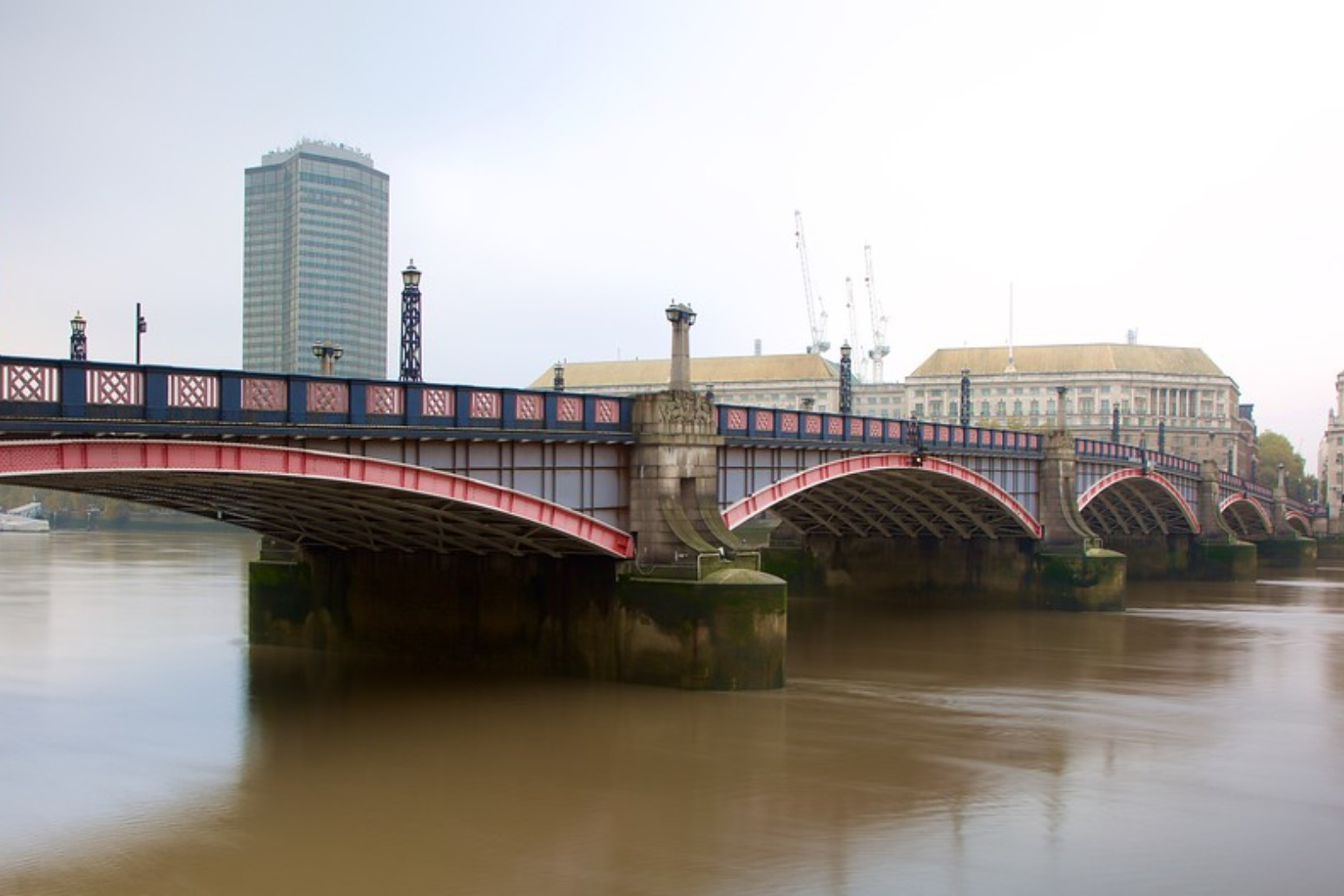
Climate activists block central London bridge
Climate activists have blocked a major bridge in central London during a march in support of nine jailed Insulate Britain campaigners.
Climate activists have blocked a major bridge in central London during a march in support of nine jailed Insulate Britain campaigners.
In full view of a heavy uniformed police presence, up to 250 people who had marched from London’s Royal Courts of Justice took part sit-down demonstration, blocking off Lambeth Bridge.
Uniformed officers stood at the scene as traffic was diverted, with the Metropolitan Police saying this was “for the safety of all”.
The demonstrators made speeches, sang songs, ate lunch and chanted slogans.
Scotland Yard said there had been no arrests by 4pm, when a large number of protesters moved off the bridge.
Cheers had broken out earlier as campaigners told the crowd that the nine jailed Insulate Britain climate activists are “political prisoners” and will not be the last to be locked up.
The nine protesters were jailed this week for breaching an injunction designed to prevent the road blockades which have sparked anger among motorists and others affected by the protests.
Extinction Rebellion later said Saturday’s sit-down protest was to break the injunction granted to National Highways, in solidarity with the at least 34 people who have broken these injunctions so far, including those who were jailed this week.
Gabriella Ditton, 27, an animator from Norwich, Norfolk, was among those who took part in the Saturday’s demonstration. She said she has been arrested six times with Insulate Britain, including once for breaking the injunction.
She said: “I expect to go to prison at some point for at least six months because I am not going to be apologetic about this.
“I have known for a couple of years that the only thing that is going to serve us is civil resistance. I have faith in people coming together.
“Solutions to this crisis exist, we just need the political will to do it.”
Zoe Cohen, 51, said she had travelled from her home in Warrington, Cheshire, to take part in the demonstration, because she is “angry, distraught and grieving for the hug3e amount of nature that we have already lost”.
She said that “ordinary people should not have to do this and risk prison” and added that “any disruption is microscopic to the suffering of millions of people who are dying now across the world due to this crisis”.
Insulate Britain began a wave of protests in September and supporters have blocked the M25, roads in London including around Parliament, roads in Birmingham and Manchester and around the Port of Dover in Kent.
In a warning directed to police at the protest, Gully Bujack said: “These streets are ours and we will put one foot in front of the other, and dare you to stop us.”
She added: “You can jail the resistor but not the resistance.”
The group, watched closely by uniformed officers, then set off towards Westminster, chanting “power to the people”.
Cheers rang out as one campaigner told the crowd that “good people have a duty to disobey bad laws”.
Insulate Britain said it was not involved with setting up the event, which was described by those who took part as community-led.
The nine protesters were sentenced at the High Court on Wednesday after they admitted breaching an injunction by taking part in a blockade at junction 25 of the M25 during the morning rush hour on October 8.
Ana Heyatawin, 58, and Louis McKechnie, 20, were jailed for three months while Ben Buse, 36, Roman Paluch-Machnik, 28, Oliver Rock, 41, Emma Smart, 44, Tim Speers, 36, and James Thomas, 47, received four-month sentences.
Ben Taylor, 37, was given a longer sentence of six months “to deter (him) from committing further breaches”, after his submissions to the court on Tuesday were described by Dame Victoria Sharp as “inflammatory” and a “call to arms”.
The judge, sitting with Mr Justice Chamberlain, said there was no alternative to custodial sentences given that the group’s actions were so serious and they had made it clear they intended to further flout court orders.
Insulate Britain has said it intends to continue the protests until the Government agrees to insulate homes.
The High Court has so far issued five injunctions to prevent protesters from blocking roads. They include four injunctions granted to National Highways, banning demonstrations on the M25, around the Port of Dover and on major roads around London, and one to Transport for London (TfL).
TfL was granted a civil banning order aimed at preventing protesters from obstructing traffic on some of the capital’s busiest roads.
Those who breach the injunctions could be found in contempt of court and face a maximum penalty of two years in prison or an unlimited fine.
Further High Court committal proceedings are expected to be issued against other Insulate Britain protesters relating to protests on October 27.
Published: by Radio NewsHub